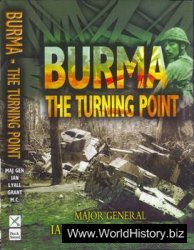SS Captain Heinrich Schwarz came from Munich and was a bookprinter. He was an early member of the Nazi Party. When the war started he was drafted into the Waffen SS and at first served with the troops and only later in the concentration camp Mauthausen. From there he came to Auschwitz in 1941 as a work Kommando leader. Schwarz was a typically hot-tempered person, very easily excited and quick to anger; however, he never acted without thinking. He was very conscientious and dependable. When he received an order, he carried it out to the last letter. He followed my orders willing and attentively. With Schwarz I never had the least suspicion that he would fool me or go behind me back. Because of his eagerness to serve me, he was often laughed at by the other officers of the camp. They also did not like him because he took his duties seriously. He was unrelenting toward those who worked sluggishly. Schwarz was a tireless worker; nothing was too much for him. He was always alert and ready for duty. I could give him the most difficult task and not worry. He carried out everything in a conscientious manner.
As work Kommando leader he had a very difficult job. Schwarz was subordinate to Maurer of D II and Maurer truly gave him a hard time.
There were continuous changes in orders; often the new orders were the direct opposite of the old ones and superseded directives from D II. Schwarz’s job was to see that every prisoner work at the job he had been expert at in civilian life. The prisoners changed their expertise so that they could get better jobs, or for some other reason they felt was important. Schwarz had his particular frustration with prisoner transferred to other camps. The final count was never right because some prisoners always became ill or were kept back in the protective custody camp for whatever reasons. The prisoners who were on standby for these transports had professions different than the ones needed, so they were useless. When the transports finally started rolling, the complaints then began from the Kommandants and the labor camp leaders of the receiving camp; either the prisoners weren’t strong enough, or couldn’t perform the assigned work, or didn’t have the necessary skills in the profession they said they had in civilian life. The letters Schwarz received from D II about these complaints were devastating and demoralizing. These letters were filled with words such as: undependable and incompetent. Maurer did this purposely to “liven up the work Kommando leader,” as he called it.
Because Schwarz was so conscientious, these criticisms often caused him great despair, although I told him time and again that D II doesn’t really mean it seriously. He did not take my advice, and he never lost his dread and timidity of Maurer’s letters even to the end. This was all the more strange because otherwise he was very tough.
Schwarz never found a way to deal with those under his command. Since he was a hard worker, he demanded the same performance from them. In addition, Schwarz had a great number of useless and incompetent men to work with. There was no chance for exchanging them for someone else because most of the time the replacements weren’t any better.
Schwarz was interested in being a comrade, but he never covered up for their violations or carelessness. This brought him in continuous conflict with the camp commander and the troops. They were just as cautious with him as they were with me.
He was very strict with the prisoners; he demanded a great deal as far as the amount of work was concerned, but I always had the impression that he was fair. He did not tolerate their unreasonable actions.
A major part of his work was providing the guard details for the construction of the subcamps. The factories caused a great deal of aggravation to him, at least until they started operating and until the plant managers learned how to handle the prisoners. There were constant problems with the Kommando leaders. How often they had to be transferred! There were constant incidents with the guard details, either with our own SS or those sent over from the army, navy, or air force.
In spite of the different tasks, Schwarz supervised everything and he always knew what was going on. If he was deceived by those under him or if his directives were not followed correctly, it happened only because no one could watch over his men for twenty-four hours and he didn’t have enough dependable SS soldiers. Schwarz did his best to try to prevent the terrible conditions and to clear up the deplorable state of affairs.
Schwarz was my faithful helper who took a lot of work off my shoulders.
Even during the extermination of the Jews, I could relax when Schwarz was on duty. Because he was attentive, he usually did not miss anything. I also don’t believe that Schwarz was ever guilty of being overbearing or ever issued any directives using my name.
As leader of the work Kommandos, he tried to be fair with their many demands according to the the importance of the project. He made his Judgments on what he saw; if he had doubts, he asked me to make a decision. He often had serious arguments with the construction bosses and the farm people outside the camp. When Schwarz became Kommandant of Auschwitz III [Monowitz—the Buna synthetic rubber factory], his areas of responsibility basically remained the same. The only difference was that he was rid of the labor details, but he still had to create new labor camps. The difficulties increased in the factories because only a few factory managers really understood how to handle prisoners and only a few old-time prisoners knew what the work was all about. Schwarz always stubbornly demanded that the prisoners be treated decently, be given good food, and have adequate shelter. He moved quickly and often drastically against those responsible when there were legitimate complaints, and he didn’t rest until the grievance was remedied. He was unable to act against the general day-to-day problems, but he tried to increase the rations and achieve a substantial improvement in the food supply.
After evacuating Auschwitz he took Hartjenstein’s place in Natzweiler, which in turn had to be evacuated. It consisted mainly of labor camps in Baden and Wiirttemberg.
Conditions in the labor camps hastily erected by the Todt Organization were not much better than those in Birkenau. In addition, Kommandant Hartjenstein did not make any substantial improvements in the six months he was there. The prisoners of these camps were almost exclusively Jews from Auschwitz. During an inspection trip in January 1945 that Pohl had ordered, I saw mostly sick and dying prisoners. As the American advance increased in April and May of 1945, Schwarz was ordered to pull back with his wretched survivors from the labor camps to the concentration camp at Dachau.
Looking at the whole picture, Schwarz was one of the few capable officers in Auschwitz.




 World History
World History









